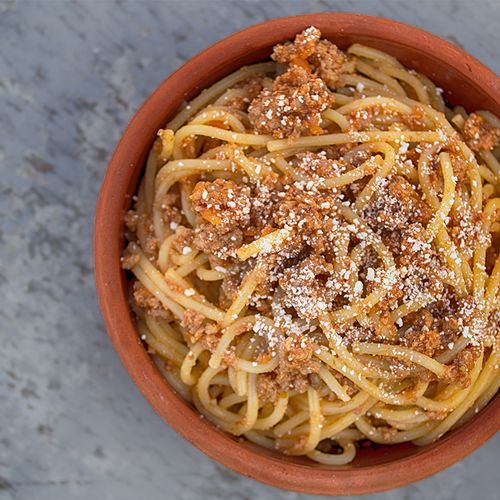It's long been known that our eating habits can have a dramatic effect on our overall health. Now a growing body of scientific evidence shows that the foods we eat can either improve—or harm—our mood.
Bonus: Mood-boosting foods will help you lose weight if you have some extra pounds to shed. They can give you the mental and physical energy to be active as well as the nutrition that best supports physical activity, muscle growth and fat burning. People of normal weight can adapt these food recommendations to their daily calorie needs.
Feel-Great Building Blocks
The basic nutrients in our food each play a role in optimizing our mood and energy levels…
- Carbohydrates are viewed negatively by most people who are trying to eat healthfully, But, in fact, these nutrients—when eaten in the proper form—are crucial to maintaining mood.
Here's why: Your mood is largely determined by a proper balance of brain chemicals (neurotransmitters). One key neurotransmitter, serotonin, is strongly linked to positive feelings.
Surprising fact: The brain uses the amino acid tryptophan, which is contained in most dietary proteins, to manufacture serotonin. But to cross from the bloodstream to the brain, tryptophan must compete against other amino acids. Carbohydrates help displace the other amino acids, thus increasing the amount of tryptophan that gets through-and the amount of serotonin that is produced.
A steady stream of carbohydrates will help your brain reach ample levels of tryptophan.
Best carbohydrate sources: Fruits (such as bananas, blueberries, mangoes, oranges, pomegranates and strawberries) and vegetables (such as broccoli, spinach, yams and carrots). These foods not only supply carbohydrates, but also contain water and fiber that slow the rate at which the carbohydrates are digested and absorbed into the bloodstream.
Helpful: When your favorite fruits and vegetables are out of season, frozen versions (without added sauces) are economical and convenient.
- Fats, like carbohydrates, have been pegged as "no-nos." But dietary fats should not be eliminated altogether-they make foods satisfying
Surprising fact: Fats are essential in keeping brain-cell membranes supple and well-functioning. For example, the omega-3 fatty acids found in certain fish (such as salmon, mackerel and sardines) have been shown to improve mood in people who are depressed.
Best fat sources: In addition to fish, try olives (any type), nuts, seeds, avocados, extra virgin olive oil and cold-pressed canola oil.
- Proteins can be converted into blood sugar (glucose)-but slowly, to keep glucose on an even keel. These nutrients also help keep metabolism (how fast you burn calories) high.
Surprising fact: Proteins are the raw materials from which neurotransmitters, including serotonin, are manufactured.
Best protein sources: Lean organic meat (beef, pork or lamb) or poultry...fish.. low-fat or fat-free dairy products...eggs...and legumes (such as pinto beans or lentils).
Good Mood Meals
After three hours of not eating, glucose levels fall and so do your spirits and energy levels. To avoid "panic eating," have a meal or substantial snack every two to three hours. For example…
Breakfast: 1 cup of shredded wheat cereal...2 tablespoons of raisins...1 cup of fat-free milk...1 egg (cooked without butter or margarine).
Mid-morning snack: 1 cup of fat-free milk ...omelet from 4 egg whites or 2 ounces of sliced turkey.
Lunch: 1 cup of bean soup (low-sodium canned soup is okay)...tuna salad (without mayonnaise, but with reduced-fat salad dressing made with olive oil and vinegar)...and mixed greens.
Afternoon snack: Orange...mini-carrots with 1 tablespoon of natural-style peanut butter.
Dinner: 1 cup of whole-wheat pasta tossed with 14 tablespoons of pesto (homemade or store-bought)...4 ounces of chicken (grilled, broiled, baked or roasted)...2 cups of sliced cucumber...at least 1 cup total of carrots and cherry tomatoes...and 14 cups of fresh strawberries with 1 tablespoon of full-fat dairy whipped topping (it has only a few more calories than a "lite" version).
Evening snack: 1 cup of hot cocoa made with fat-free milk, 1 to 2 rounded teaspoons of unsweetened cocoa powder and Splenda (one packet or to taste) or another sweetener, such as agave nectar (a syrup derived from a desert plant). It is sold in health food stores.
Exercise-Mood Connection
Exercise not only helps control your body weight, but also has been shown to improve mood and reduce depression (as effectively as medication, in some studies). At a minimum, get 30 minutes of activity (at the level of brisk walking) five to six days a week.
Sniff Mint to Lose Weight
In a recent finding, people who sniffed peppermint oil every two hours ate almost 350 fewer calories a day than those who did not.
Possible reason: Peppermint boosts alertness, so people who smell it may be less likely to snack because of fatigue or boredom.
Skip MSG to Stay Slim
People who used the flavor enhancer monosodium glutamate (MSG) the most were nearly three times as likely to be overweight or obese as people who did not use MSG, a recent study found—even though calorie consumption and physical activity levels were the same in both groups. MSG may affect the part of the brain that helps regulate appetite and fat metabolism. Check food labels—many processed and Asian foods contain MSG...as do the flavor-enhancing ingredients yeast extract, hydrolyzed protein and calcium caseinate.
